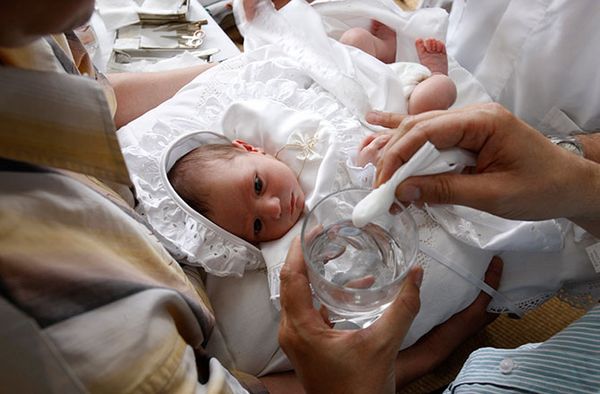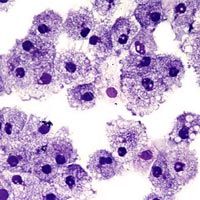Circumcision is the removal of the foreskin that naturally covers and protects the tip of the penis, a practice that has waxed and waned in popularity for thousands of years. It's quite common in some parts of the globe, such as the United States and the Middle East, while it's the exception to the rule in Europe and South America. In other places, such as Africa, it all depends on the customs of the tribe to which you belong -- some tribes universally perform circumcisions, while others universally do not.
The Book of Genesis in the Jewish Torah and the Christian Old Testament tell of God's deal with Jewish patriarch Abraham: If Abraham, his sons, his slaves and all descendants would practice circumcision, God would bless them with a kingdom on Earth.
Advertisement
But circumcision predated this supposed event, and ancient hieroglyphs show that Egyptians circumcised their males long before Abraham proved his devotion to his Creator by circumcising himself at age 99. For as long as we can guess and for reasons we can only speculate, people all over the world have been practicing circumcision: Aboriginal Australians, Mayans, Aztecs, Phoenicians, Sumatrans, Samoans and Ethiopians, to name a few.
African tribesmen consider it a rite of passage for young men, and so infant circumcision is quite rare. Nearly all Jews and Muslims practice circumcision for clear religious and cultural reasons: Jews circumcise infants to honor Abraham's covenant, and Muslims circumcise their sons -- either as infants or as adolescents -- to emulate and honor their prophet Muhammad, who himself was circumcised. The Christian Church, however, early on determined that there was no need for Christians to circumcise themselves.
So why do so many Christians -- and so many people who are neither Jewish, Muslim or Christian -- continue to circumcise themselves or their offspring? The World Health Organization estimated in 2007 that 75 percent of non-Jewish, non-Muslim males in America were circumcised [source: WHO]. Are there health benefits to circumcision that justify the pain and permanent physical alteration it creates in newborn boys? Shouldn't children be allowed to grow up with all their parts intact and have a chance to examine the facts and decide for themselves? On the other hand, an uncircumcised penis requires care and cleaning to keep it healthy and free of the bacteria buildup that can cause unpleasant odors, infections and urinary tract infections. Isn't it just easier to be circumcised as a baby and not have to worry about it?
Simply put, is circumcision a savage act or good preventive care?
Advertisement



